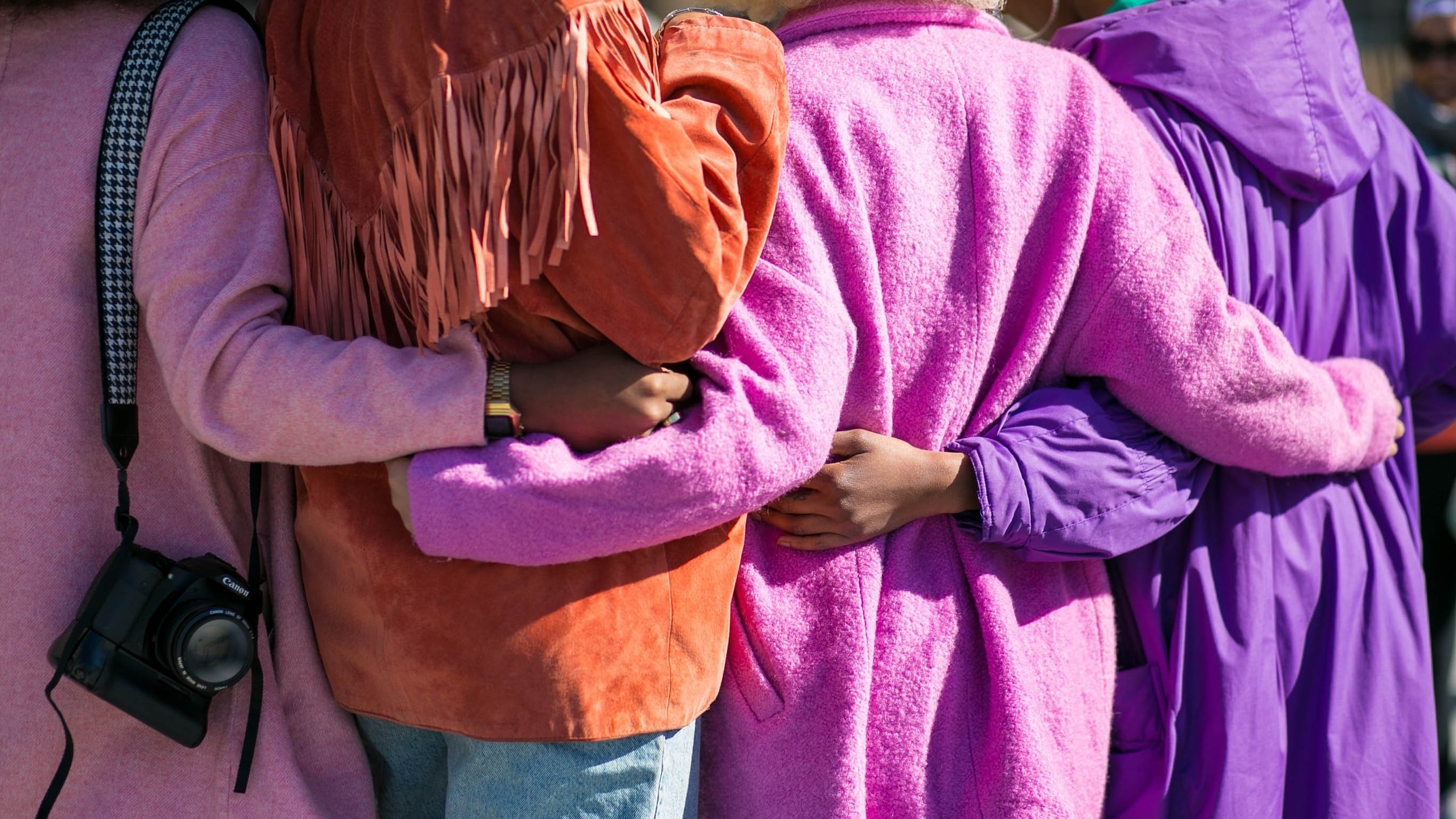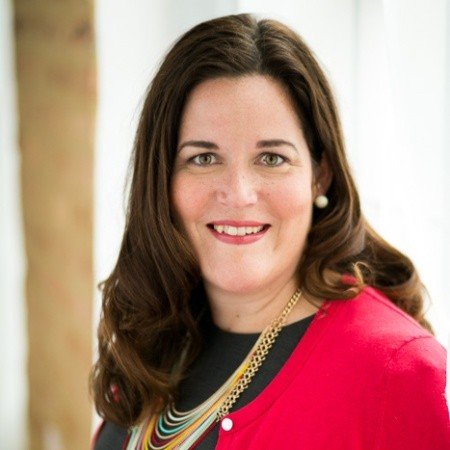Examining human life.
Looking outside the human.
In Episode 4 of Looking Outside we’re joined by down-to-earth insights & marketing rockstar, Michelle Gansle, Vice President of Global Strategic Insights at McDonald’s. Today we’re looking outside The Human.
Together Jo and Michelle discuss what it means to truly be human-led inside and outside of work, both by humanizing the people we work with and ourselves. And how understanding yourself as a human being more deeply can help pull you out of your comfort zone and into curious new spaces.
The Insights industry is in a continual state of transition, no more felt than during the pandemic. Michelle shares her observation of human nature from the past two years, within and outside of the office. In exploring human-centric leadership, Jo and Michelle discuss the skill of finding and cultivating your superhuman power, getting out of your comfort zone by cultivating curiosity, and how vulnerability and facing into emotions at work should be a natural part of leadership.
Jo’s take.
It seems like a no brainer to think about people as human beings. Whether we’re talking about the consumers we sell to, the employees we manage or the people we live with. And yet we hear a lot about our current empathy-deficit, we see google trends for ‘human’ at an all time low (yup we saw a little spike in February 2020 but that’s since bottomed out), we see the excessive lean towards mindlessness despite talking about mindfulness.
In 2022 more than I’ve ever experienced in the corporate world we are speaking to employee wellness, of openness and diversity (to experience, talent, perspective alongside physical attributes), of emotional and mental resilience. So what’s going on here? Are we actually at a turning point where we care more about each other and ourselves than the things we own and the things we do?
I’m not so sure. But there is an interesting inflection.
We are more advanced in many ways than ever before, we are coming to a point where population growth plateaus in many fast growing parts of the world, where economies worse off catch up to the better off, where we start to think about innovation not as net-new but as repurposed and regenerative, where the marketplace evolves and we catchup to our favorite science fiction stories … and yet we stay the same in many respects. We repeat our mistakes, we still struggle to control our emotions (now we have a digital avatar to hide behind) … we still live a life in many ways counterintuitive to the one we aspire to live.
As Michelle and I discussed on the show, we are complex and contradictory creatures and that will never change. So perhaps what is changing is our desire to understand that better. To showcase that ‘humanness’ to others and encourage everyone to get a little more curious. As Socrates said, “The unexamined life is not worth living”. That is surely what drives a lot of us into professions where we are paid to examine life and the living.
Then again, maybe we overthink this because we take ourselves too seriously. If there is one thing I have always taken to heart it’s the need to step back from what you’re doing, take a breather, and get some perspective. Socrates may have been a smart and curious man on a quest to understand human motivations, but he too admitted that wisdom is knowing that you know nothing.
5 ways Michelle looks outside what makes us human
1 | We don’t leave our emotions at home when we go to work.
There's all kinds of data and literature on how important it is for people to feel happy, engaged, that they have a best friend at work. It's the reasons why the 12 questions that Gallup asks in their engagement survey is all based on the data and science, right? So that idea that there's no time for emotions or dealing with people’s feelings or energies is the reason why we have 20% attrition turnover rate or why we have people being disengaged or ineffective. So I would say that it's not just a nice thing to do from a human point of view, there is an ROI to investing in people and making sure they feel heard and understood and brought along the journey and motivated.
2 | There’s no such thing as a hamburger emergency.
I do think there is some magic in taking risks because the more risk you take anywhere in your life, the more comfortable you get with it, and the more you're likely to take more risks. So there is actual theory behind that. I don't know that I'm always that intentional, I'm just naturally a curious person. But the out of office messages I think it's more that idea of bringing my human self to work. And, you know, letting people know not just that I'm out of office but what I'm doing and where I'm going. And also having fun, we tend to be so serious and I always joke like there's no such thing as a gum or a hamburger emergency. Man we take our jobs so seriously, but we should be having fun. Both at Mars Wrigley and in McDonald's our whole mission and vision is to bring smiles to people's faces and bring moments of joy, so we should be having those same moments of joy and smiles at work.
3 | Develop the strengths, not the weaknesses.
We all have parts of our jobs that aren't our passion or don't align directly with our strengths. You know that whole concept that people are more likely to be effective if they're living into their strengths than trying to fix their faults or deficiencies. I wholeheartedly ascribed to that. So often in the corporate world we spent all these energies saying all the things you don't measure up to and all the ways you need to improve those things. But actually we should just focus on what you're really good at and find work-arounds for the part you're not good at. There's always somebody who's going to be good at the things you're not good at, so that idea of when we talk about having diverse teams, we mean that beyond just color of skin or ethnicity, but also diversity of strengths and thinking and that's how you get to the magic of people working at the very best. You can pull together that right mix of people.
4 | Consumers don’t just live in the context of your category.
I think it's super important in general, but even more important in corporate America where there's so many buzzwords and language carries so much meaning. But I do love this move from consumer to humans and I think the reason why the world has moved so quickly to that is because I think COVID has shaken it. It's like having a bunch of dice in a jar and you shake it up. It's still all the same dice, but it's in a different order and an order that's not repeatable or expected and so people are realizing that the world is more complex than just consumers in the context of our categories. But everything that's happening in the world in the context of our personal lives, or family lives, our community and the world. Context is affecting decisions that we're making. It's great for us as insights people all of a sudden there is this deep need and desire to understand humans more holistically, which I'm thrilled about.
5 | Don’t wait for a challenge, challenge yourself.
I ask a lot of people who I know have similar challenges or are doing something similar, ‘how do you handle this’, or ‘what tools, techniques or resources did you use?’ And just by doing, by setting risk for myself, making it almost like a little goal or competition being intentional about what that thing is. So for example, I tried to take one new risk every month. That was a couple years ago. This year I'm trying to read one new book every month.
About Michelle.
Michelle is the Vice President, Global Strategic Insights, and leads the McDonald’s Global Insights organization. Michelle and her team connect human truth with business strategy to drive growth.
Michelle recently drove the insights transformation at Mars Wrigley. Here she pushed the boundaries of Martech and Digital Adoption to create a more future focused organization with the development of a dedicated Foresight Team. Michelle has 28 years of experience in Marketing, Market Research & Business Development, for several global Fortune 500 Companies including Dell Computers, Clorox, Nestle and Mars.
Michelle has high integrity and a people-focused leadership style. Her passion for supporting diverse teams in realizing their potential shines through as does her love of the McDonald’s business and brand.
Prior to living in Chicago, Michelle had the opportunity to live and work in Europe for four years. In her free time, Michelle loves music, travelling the world, and checking out new restaurants. She hopes to get to 100+ countries in her lifetime and cannot wait to travel again, stopping off at our restaurants to enjoy a Sausage & Egg McMuffin along the way!

